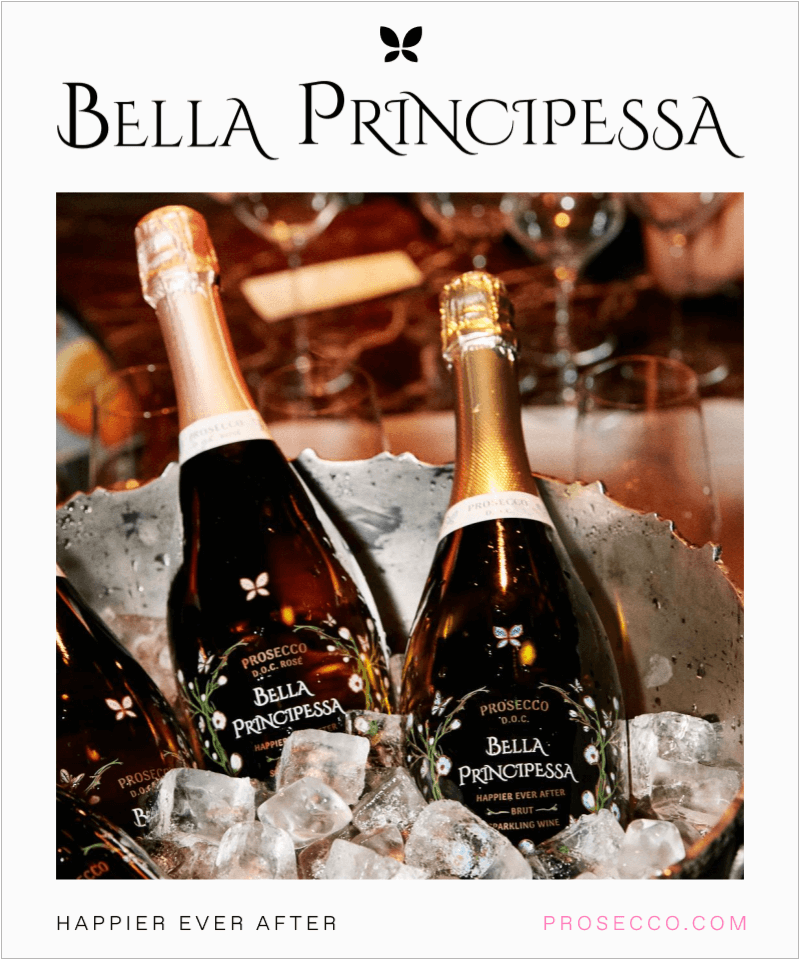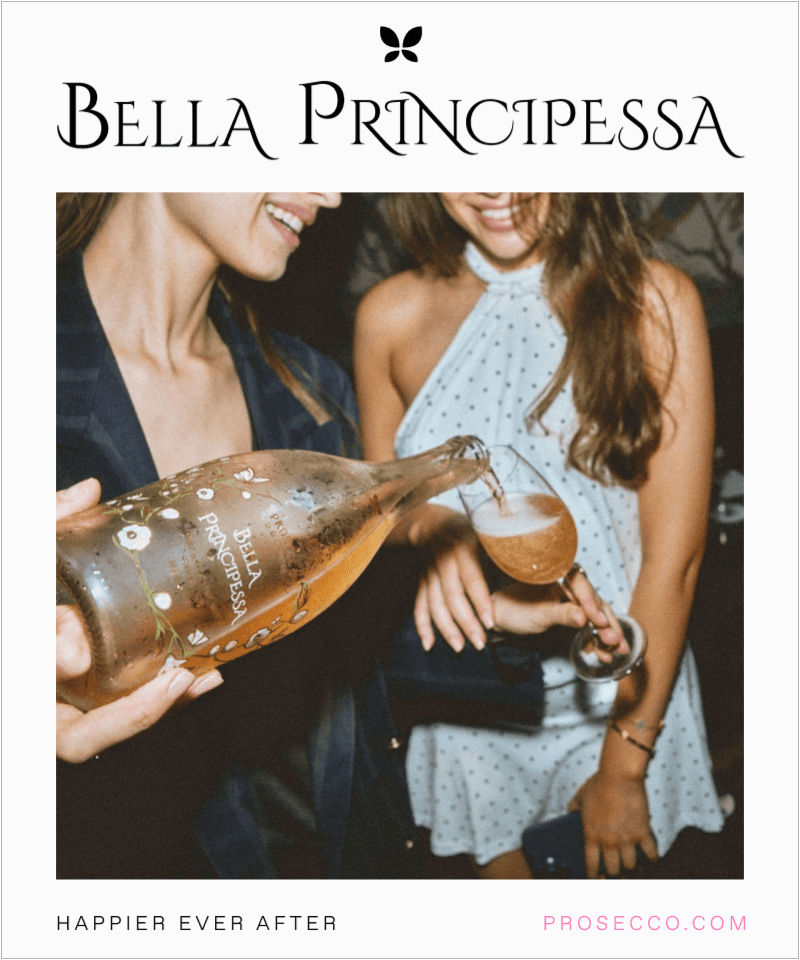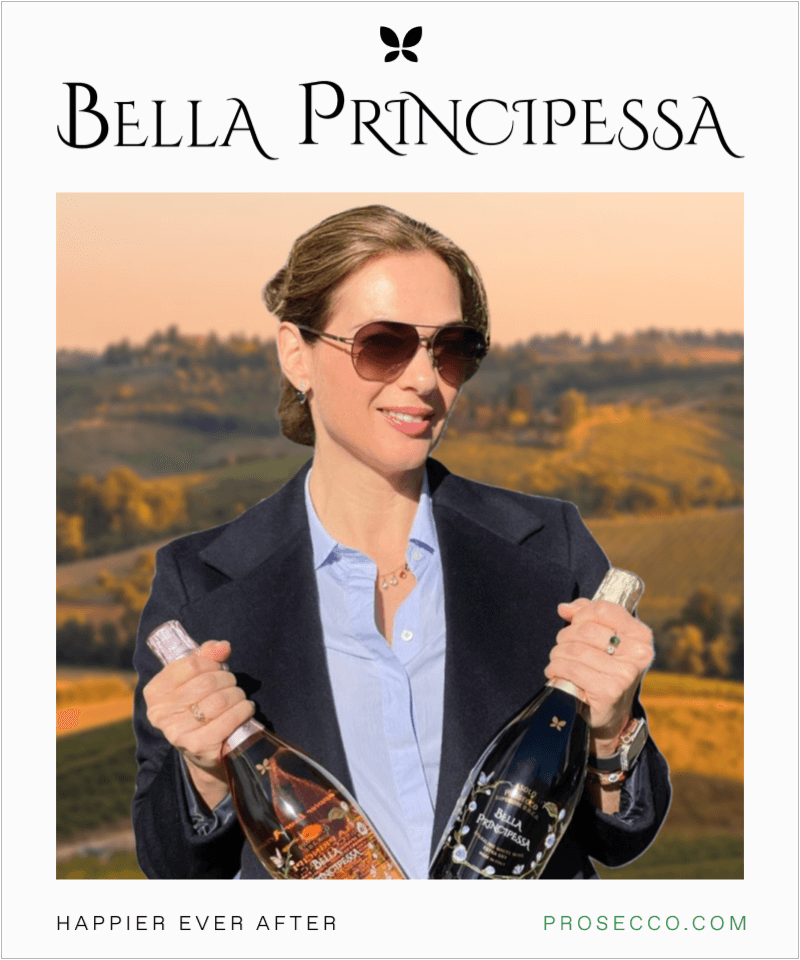Whether Prosecco is vegan or gluten-free is essential for consumers with specific dietary preferences or restrictions.
Prosecco, a celebrated Italian sparkling wine known for its refreshing and effervescent qualities, is generally gluten-free, as seen in popular prosecco brands like Bella Principessa and Signorina.
Prosecco and Gluten
Prosecco is naturally gluten-free. It is made from grapes, which do not contain gluten, making it safe for people with celiac disease or gluten intolerance.
Since Prosecco is a grape-based wine, similar to Champagne, the primary ingredients do not involve any gluten-containing grains.
However, there may be rare instances of cross-contamination, particularly in cases where barrels sealed with wheat paste are used.
Despite these rare cases, the inherent nature of Prosecco as a grape-based wine makes it a generally safe option for those avoiding gluten.
Prosecco and Veganism
The vegan status of Prosecco can be more complex. While Prosecco itself, made from grapes, does not contain any animal products, the fining process used in wine production can introduce non-vegan elements.
Fining is used to clarify the wine and can involve agents such as casein (milk protein), gelatin (animal protein), albumin (egg whites), and isinglass (fish bladder protein). These agents remove organic particles from the wine, affecting its clarity and taste. However, not all Proseccos use animal-based fining agents.
Many modern Proseccos are made using vegan-friendly methods, either by using alternative fining agents or by allowing the wine to self-clarify over time. As a result, many Proseccos are vegan-friendly, but they vary from producer to producer.
In recent inspections, brands like Bella Princpessa Prosecco have been confirmed vegan-friendly.
The Importance of Labeling and Certifications
For both gluten-free and vegan consumers, labeling and certifications are crucial. While Prosecco is generally gluten-free, those with severe gluten allergies or celiac disease should look for bottles that explicitly state they are gluten-free to avoid the rare risk of cross-contamination.
Similarly, vegans should seek out Proseccos that are labeled as vegan or check with the producer to ensure no animal-based fining agents are used. Labels and certifications provide an added layer of assurance for those with specific dietary needs.
Prosecco’s Popularity Among Diverse Dietary Preferences
The growing awareness and consideration for different dietary preferences have led many Prosecco producers, including Bella Principessa Prosecco and Signorina Prosecco, to adapt their production methods to cater to a broader audience.
By embracing gluten-free and vegan-friendly practices, these brands ensure that their Prosecco can be enjoyed by a wider range of consumers, regardless of dietary restrictions.
Conclusion: Prosecco’s Accessibility to Various Diets
In conclusion, Prosecco is a versatile and inclusive wine option suitable for many people with dietary restrictions. Its natural, gluten-free status makes it a safe choice for those avoiding gluten, while the increasing availability of vegan-friendly Proseccos caters to the growing vegan community.
While it’s important for consumers to check labels and certifications, Prosecco, as seen in brands like Bella Principessa Prosecco and Signorina Prosecco Doc, offers a delightful wine experience that aligns with various dietary needs.











